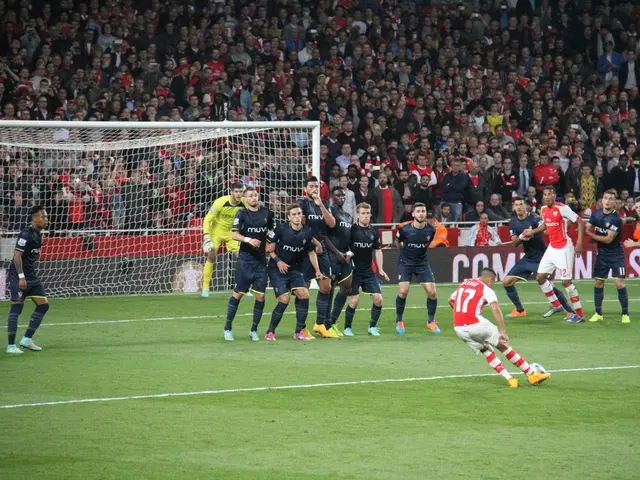Allegation of Deceptive Practices by DraftKings and FanDuel in Baltimore City User Misrepresentation Lawsuit
Baltimore's got some beef with two big names in online sports betting. The city's government has slapped lawsuits on DraftKings and FanDuel, accusing them of employing underhanded and deceptive tactics that prey upon the vulnerable, notably those with gambling addictions.
Mayor Brandon Scott, alongside the City of Baltimore, has initiated this legal battle in Baltimore City Circuit Court. The city's complaint contends that these corporations run marketing ploys and promotions that distort users and fuel compulsive gambling.
Mayor Scott went on the record stating, "DraftKings and FanDuel have specifically targeted our most vulnerable residents—including those struggling with gambling disorders—and have caused significant harm as a result." He further emphasized, "This lawsuit is a vital move to hold them accountable and protect all Baltimoreans."
The focal point of contention revolves around promotions hyping deals like "bet $5, get $200." According to the lawsuit, these enticing offers come with hidden conditions. For instance, users must place successive bets within specific time frames to meet the criteria for bonuses, a strategy the city alleges exerts pressure toward compulsive gambling.
The complaint also dives into concerns regarding the companies' use of behavioral data. It accuses DraftKings and FanDuel of amassing hundreds of data points on bettors, leveraging that data to detect signs of addiction and subsequently sending targeted offers to keep those consumers engrossed.
The lawsuit cites evidence from the University of Maryland's Center of Excellence on Problem Gambling, which reveals that online sports bettors are nearly twice as likely to battle gambling issues compared to in-person bettors—20.8 percent versus 11.3 percent.
Furthermore, it references media reports detailing instances where high-stakes bettors attempting to quit were re-engaged with special bonus offers from VIP hosts, leading them back into the gambling whirlwind.
The city claims that the companies are aware of this pattern but continue to enable it, despite indications that some users may already face gambling disorders. The lawsuit contends, "Upon information and belief, DraftKings and FanDuel VIP hosts and managers continue to target Baltimore users whom they respectively know or should know have a gambling disorder."
- Baltimoreans who are struggling with gambling addictions are allegedly being specifically targeted by DraftKings and FanDuel, according to Mayor Brandon Scott.
- The city's complaint against DraftKings and FanDuel in Baltimore City Circuit Court includes concerns about the companies' marketing ploys and promotions that may fuel compulsive gambling.
- Hidden conditions in promotional offers like "bet $5, get $200" are accused of exerting pressure toward compulsive gambling, as users must place successive bets within specific time frames to meet the criteria for bonuses.
- The complaint further dives into the use of behavioral data by DraftKings and FanDuel, alleging that the companies amass data points on bettors to detect signs of addiction and send targeted offers to keep those consumers engaged.
- University of Maryland's Center of Excellence on Problem Gambling findings show that online sports bettors are almost twice as likely to battle gambling issues compared to in-person bettors, which is a point of concern in the lawsuit against DraftKings and FanDuel.






